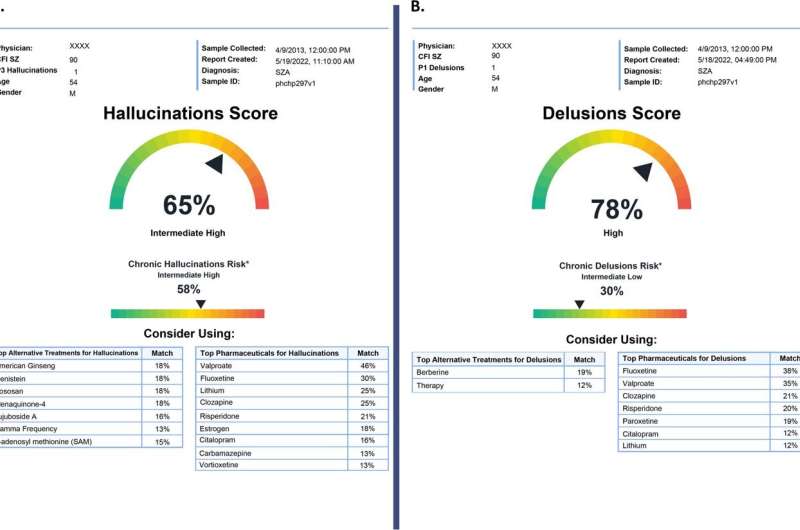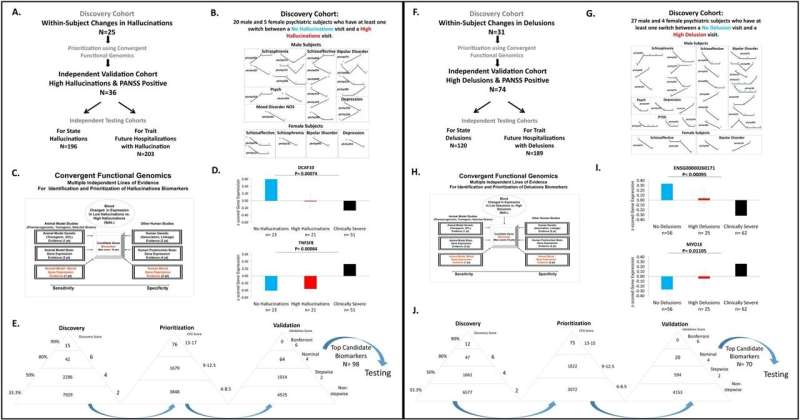This article has been reviewed according to Science X's editorial process and policies. Editors have highlighted the following attributes while ensuring the content's credibility:
fact-checked
trusted source
proofread
Research team develops blood test to predict psychosis risk and most effective treatments

A team of researchers led by Indiana University School of Medicine faculty have developed a breakthrough new blood test for schizophrenia, a psychiatric disorder that includes hallucinations and delusions.
Schizophrenia and related psychotic disorders affect over 3 million people in the United States. The new test identifies biomarkers in a person's blood that can objectively measure their current severity and future risk for schizophrenia and match them to treatments that will be most effective for their individual biology.
"Schizophrenia is hard to diagnose, especially early on, and matching people to the right treatment from the beginning is very important," said Alexander Niculescu, MD, Ph.D., Professor of Psychiatry and Medical Neuroscience at the IU School of Medicine, staff psychiatrist and investigator at the Richard L. Roudebush Veterans Administration Medical Center in Indianapolis and senior author on the study.
"Psychosis usually manifests in young adulthood—a prime period of life. Stress and drugs, including marijuana, are precipitating factors on a background of genetic vulnerability. If left unchecked, psychosis leads to accumulating biological damage, social damage, and psychological damage."
In a study published in Molecular Psychiatry, researchers tested psychiatric patients that they followed for over a decade. They identified biomarkers that were predictive of high hallucinations and high delusion states, as well as future psychiatric hospitalizations related to hallucinations and delusions. They also studied which biomarkers are targets of existing drugs, which enables the matching of patients to the right treatments.

The work builds on previous research over the last two decades by Niculescu and his colleagues on blood biomarkers for other psychiatric disorders (mood disorders, anxiety, post-traumatic stress disorder, suicidality risk, pain, and memory disorders).
Niculescu said in general, the best biomarkers were more predictive than the standard scales used to evaluate someone with hallucinations or delusions, which means the use of this biomarker test can help reduce subjectivity and uncertainty from psychiatric assessments.
"Fortunately, biologically, some of the existing medications work quite well if initiated early in the right patients," Niculescu said. "Social support is also paramount, and once that and medications are in place, psychological support and therapy can help as well. There is still plenty left to understand and apply about cognition and its abnormalities, but there is reason for optimism in this era of emerging precision psychiatry."
More information: M. D. Hill et al, Precision medicine for psychotic disorders: objective assessment, risk prediction, and pharmacogenomics, Molecular Psychiatry (2024). DOI: 10.1038/s41380-024-02433-8



















